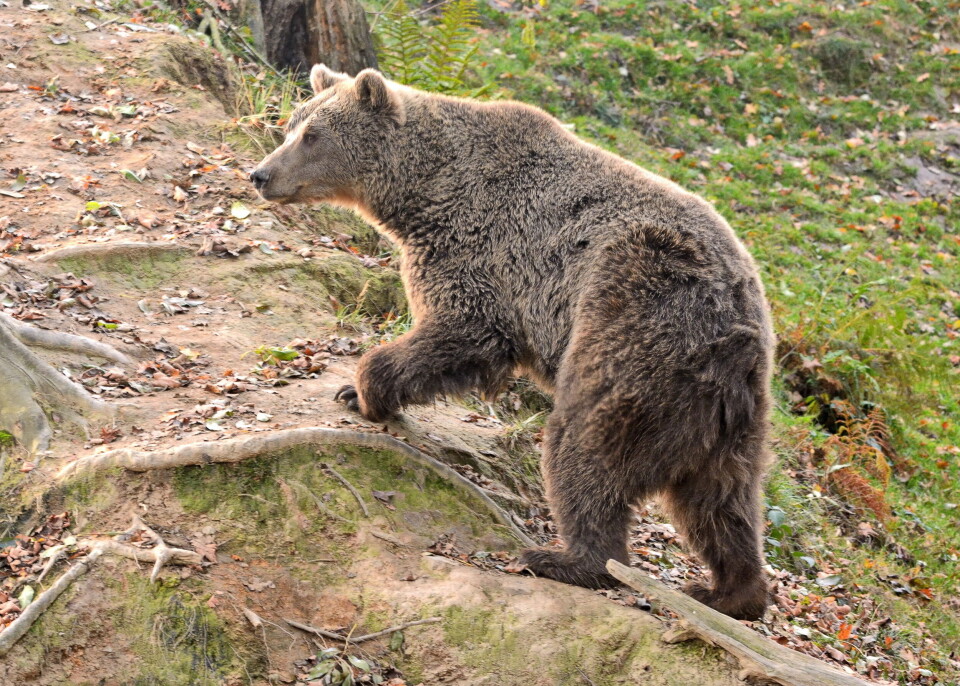-
Further sightings of processionary caterpillars in France prompt action from local authorities
Caterpillars have arrived early after mild winter
-
From Oregon to Brittany: primrose nursery in France celebrates 90th anniversary
Barnhaven Primroses traces its history back to 1930s America
-
Rugby vocabulary to know if watching the Six Nations in France
From un tampon to une cathédrale, understand the meaning of key French rugby terms
Brown bear numbers growing in French Pyrenees after reintroduction
Record numbers of cubs were born last year thanks to a state-backed repopulation project, but illegal hunting and claims of broken promises from the French government are a threat

The brown bear population in the Pyrenees is increasing slowly but steadily, says Alain Reynes, the director of the Pays de l’Ours association, which is responsible for the reintroduction project.
Last year saw a record number of bear cubs born, but the sustainability of the brown bear population remains fragile, especially as many of the cubs were male.
“The bear population is steadily increasing by around 10% per year, but alongside that is an increasing problem of interbreeding,” he says.
“It’s worrying in the long term. Also some bears have been killed, which is inevitable in a way.
“A male and a female died last year, and we need to replace them with genetically unrelated bears.
“The government is obliged to do it and has agreed to in principle, but they haven’t taken any steps towards doing it, primarily because of the anti-bear lobby in the Pyrenees.”
Government interest short lived
Those people opposed to the introduction of bears in the Pyrenees are slowing the project down, he says, but are not preventing it from going ahead.
Jean-Yves Chiaro was temporarily appointed as a ‘préfet délégué de l’ours’ but the mission was only for six months.
“He didn’t have specialist knowledge about bears or even the Pyrenees, however he was available to listen to everyone, which was positive. But he only came in order to make a report and he’s gone again now.
“Reconciling people to the presence of brown bears in the Pyrenees will take time, and education.”
Bear attack on illegal hunt
Bears are not a threat to humans; they are very shy, fearful, and mainly nocturnal. It is possible to see them during daylight hours but this is rare.
There are more than 70 brown bears in the Pyrenees now, but only a few dozen sightings each year.
In 2021, a hunter taking part in a collective drive was confronted by a female bear who was driven towards him along with her two cubs.
Prevented from escaping, she bit the hunter’s leg and he shot and killed her.
Read more: Hunter fatally shoots bear in southwest France after it bit him
Read more: Hunter who shot bear in south France may have been in no-hunting zone
Read more: Orphaned bear cubs likely to die, says French animal rights group
“The hunt was taking place illegally since it was in a reserve where hunting is banned,” says Mr Reynes.
“We need to work with hunting associations more closely to avoid this happening again. Groups need to be well-trained in how to react when faced with a bear.”
Suing French government
He says that not only were two bears killed on the French side of the Pyrenees but a further two (also one male, one female) were killed on the Spanish side of the mountain range last year and they have not been replaced either.
“We are working to release more bears but the government won’t make even the smallest move so we are taking them to court for non-respect of a legal contract.”
A study has calculated that a population of 250 brown bears would be viable in the Pyrenees. Bears do not have any predators in Europe, other than humans and other bears.
“As we see in all large carnivores during the spring mating season, an alpha male will kill cubs unless he has some memory of mating with their mother. But generally mothers defend their cubs very well.”
Related articles
Video: remarkable footage of bears in France's Pyrénées
Wild mountain bear gives birth to three cubs in south-west France
Farmers and hikers given safety tips on French Pyrenean Mountain Dogs
























